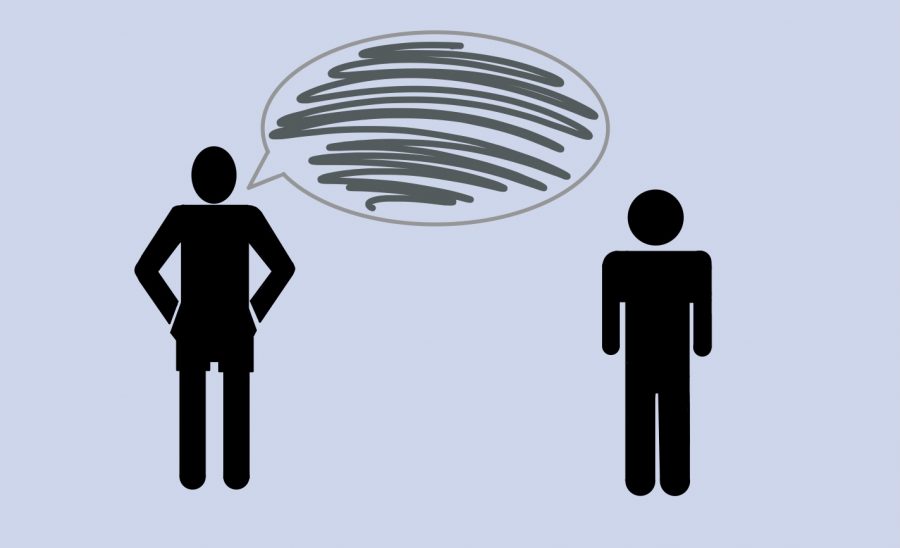It’s Time to Retire the R-Word
The r-word needs to be removed from our vocabulary.
December 9, 2020
This article contains language that may be upsetting to some readers.
“That’s so retar-”
Stop.
In 1961, “mental retardation” was introduced as a medical term for those diagnosed with developmental disabilities. Since then, use of the term has been eliminated from the medical field and instead is commonly used to imply stupidity — and that is the problem.
Oftentimes, the word is used in everyday conversation by people of all ages and across social media platforms.
I have called numerous people out after hearing the word slip out of their mouth, asking them not to use it, and in turn, they respond with one of two reactions.
Many people usually apologize and say they didn’t even realize they said it. Others might argue that the word no longer has the connotations it once did and is simply a synonym for stupid.
It’s understandable if someone mistakenly says the word and apologizes for it — to me, that is worthy of forgiveness. However, it is unacceptable for an individual to feel that they have not offended someone by using the outdated term, even more so when an apology is neglected and a care to understand the term’s meaning is avoided.
I don’t think some people genuinely understand how offensive the r-word is.
Using the r-word as a synonym for calling someone or something stupid implies that those living with intellectual disabilities are stupid.
Being born and living with a disability is already difficult for an individual, and having others generalize you with the use of a derogatory term makes it even harder. Calling someone the r-word, an offensive slur — it’s unacceptable.
Labeling someone with the r-word is insulting to the intellectually disabled community.
For families across the world with mothers, fathers, daughters, sons, brothers, or sisters living with intellectual disabilities, such as Down Syndrome, it’s imperative that we eliminate the use of the r-word to better their way of living and to allow them to proceed with ease and without discrimination.
Some people may find it difficult to eliminate the word from their vocabulary, but with time and intention, avoiding the word will feel natural.
Saying the word doesn’t mean you are a terrible person, but you must understand the impact of the word and respect why someone would be upset that you would use it.
I have a family member living with a disease that can be perceived by some as an intellectual disability. He’s young, a year younger than I am. I don’t live near him, but his family occasionally visits Oregon.
He is 15 years old, and was born with a genetic disease that affects his physical body growth. He had a brother, but due to this same disease, he passed away about two years ago.
I have a picture of my brother and I with them hung on the wall in my room. One day, a friend, who I am no longer in touch with, came over and said something about their appearance — something including the r-word.
I immediately asked them to not call any person that, let alone my cousins. Then, I further explained that they have a genetic disease called Duchenne Muscular Dystrophy.
It is a rare disorder that is predominantly found in boys and that progressively weakens muscles. There is no cure. Most who live with Duchenne only survive until they’re thirty, possibly older — but one of my cousins wasn’t that lucky.
If you know the r-word is something that people are sensitive to, why use it? Other words are accessible and less derogatory.
Having family members that were born with intellectual disabilities may make me biased, but I think it makes me more passionate to call for an end to the use of this word.
I will always call someone out if the word is used, and I encourage you to do the same. Whether it’s a family member, friend, or someone superior to our statuses, we must work together to eliminate the use of the word and spread awareness about its truly hurtful meaning.






Katie Allen • Dec 10, 2020 at 12:52 pm
Avery – Thank you so much! It astonishes me when people use this word carelessly without understanding (or caring about) the pain it causes. I have run across this myself and, while it may be hard to speak out to a friend/family member, it’s important to educate others on the cruelty of this harmful word. Thanks for calling attention to this and for the great advice to us all.